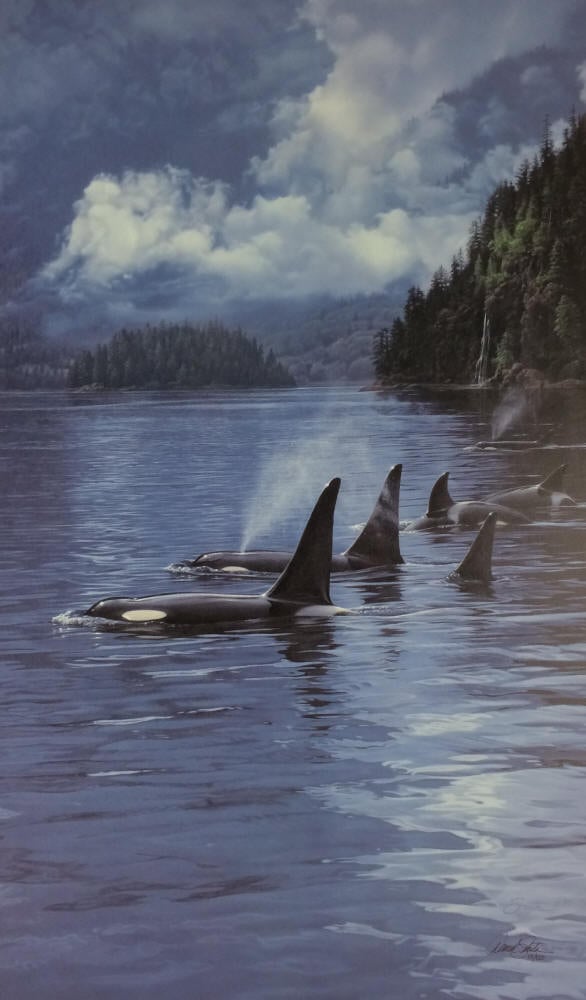Ancient Mariners
As the sun struggles to penetrate the low-hanging clouds of the Pacific Northwest, ancient mariners glide through its pristine waters. Scientists believe that these wondrous mammals, known as orcas or killer whales, originally diverged from a group of land-dwelling carnivores some 70 million years ago.
Orcas are the supreme predators of the ocean. At the top of the food chain, they are referred to as killer whales only because they are the world's largest predator of warm-blooded animals. Orcas can be found in every ocean throughout the world, although they seem to prefer the prey species of colder waters, such as salmon.
I find them extremely fascinating and can't help but compare them to wolves, their land-dwelling counterpart. There is even a Northwest Indian legend of the first orca who was transformed from a supernatural white wolf. Both the orca and the wolf travel in family groups of similar size containing three generations; orcas in tight, inbred matriarchal associations called pods, wolves in communal packs. Both species have organized hunting skills, and both are extremely sensitive and intelligent. Both species "vocalize," and, in fact, researchers have found that each orca pod has its own distinct dialect.
Despite the preponderance of folklore to the contrary, there has never been a documented account of an orca attacking a human as its prey. Unlike man, orcas kill only to eat. The fear and hatred once directed at this species stems from man's age-old prejudice against all predators. Among native and aboriginal people throughout the world, there is a widespread taboo against killing orcas, but for years they were killed indiscriminately by North American fisherman who considered them competition. In recent years, as researchers have learned more about their behavior and characteristics, we have discovered that the name "killer whale" is inappropriate for a species so kind and gentle.
- Daniel Smith

